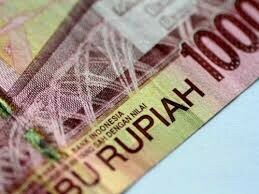BENGALURU: The Indonesian rupiah plummeted to its weakest since the Asian Financial Crisis nearly three decades ago on Tuesday, pressured by concerns about the fiscal health of Southeast Asia’s largest economy, but managed to recoup some lost ground after intervention by the central bank.
The rupiah weakened as much as 0.5% to 16,640 per US dollar, its weakest since the lifetime low it hit in June 1998 during the Asian Financial Crisis. The currency was last trading at a near-one-month low of 16,590 a dollar.
The currency has lost more than 3% so far this year and is among the worst-hit emerging market currencies in the world.
An official with the Bank Indonesia (BI) told Reuters the central bank intervened to stem the rupiah’s fall, which it attributed to global and domestic factors including domestic market demand for repatriation purposes and other payments.
President Prabowo Subianto’s populist spending plans, push for state-owned firms to be supervised by a new sovereign wealth fund, and expansion of the military’s role in civil society, have sparked concerns about the country’s long-term fiscal stability.
Market anxieties were exacerbated last week after rumours of the resignation of Finance Minister Sri Mulyani Indrawati, known for keeping a tight rein on government spending. She has since denied the rumours and pledged to maintain fiscal discipline.
The rupiah’s “underperformance was largely due to softer fundamentals, including fiscal worries, unexpected current account deficit, economic soft patch and growing expectations that BI may have to soon ease policies,” Christopher Wong, a currency strategist at OCBC, said.
Jakarta’s benchmark index rose 1% to come off the more than three-year low it hit on Monday, led by a recovery in financials.
Tushar Mohata, an equity research analyst at Nomura, said investor concerns had likely peaked, and equity markets presented “an asymmetric upside opportunity”.
“Over time, as these issues are clarified, we see an opportunity, given that the market appears to have priced in excessive negativity, and risk-reward is turning increasingly favourable,” Mohata wrote.
Notwithstanding the optimism, the benchmark remains one of the worst-performing indexes in the region, with a 12% decline so far this year. Foreign investors have sold over $2 billion worth of stocks in that period.
Meanwhile, Singapore’s Straits Times index hit a record high led by banks, while the local dollar was unchanged. Malaysia’s ringgit declined 0.2% and the Thai baht weakened to a three-week low.


















Comments